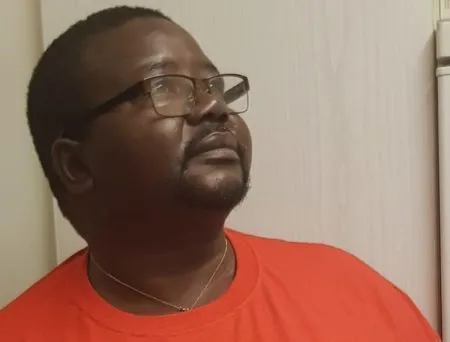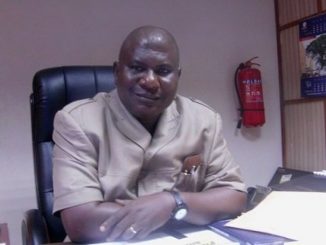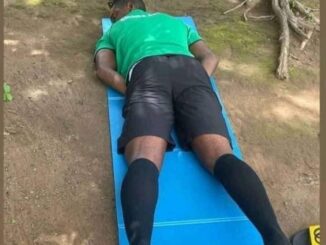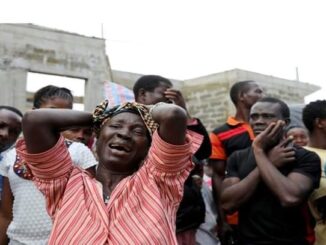
By Abdulai Mansaray
Like many countries around the world, Sierra Leone is experiencing social, political and economic speed bumps, after tough challenges in recent times. There is a saying that “a man who has never travelled, thinks his mother is the best cook”. However, Sierra Leone does not have monopoly on the hardship that is threatening world stability. The situation in Britain is described as a “living crisis, in Sierra Leone, “De gron dry and de game don big”, and to others it’s a “recession”. It just goes to show that not all lizards crawling on their belly suffer from stomach pain.
As the economic crisis deepens, fuelled by man-made self -harm and external forces beyond national control, it becomes unavoidable that the rippling effects could spill on to other areas, and especially the political sphere. The increasing political flashpoints between the ruling SLPP and opposition parties are not surprising, though regrettable. Like any other country, we are facing a national crisis; a time when we should all pull our collective resources to see our country through this near catastrophe. Sadly, this is not the case.
Recently, “ Femi Claudius-Cole and Dennis Bright were arrested last Sunday for allegedly inciting several women in Freetown to take part in street protest against rising cost of living and growing poverty in the country” (thesierraleone telegraph.com , 6/07/2022). The Sierra Leone Police released a statement on 06/07/22, that due to social media posts reportedly “laced with threats of killing drivers, motorcyclists, police officers and soldiers”, its release “clearly stated that no person or group was granted permission to embark on demonstrations on the said date “(sic 4th July) (the sierraleonetelegraph.com).
According to the police, and citing the Public Order Act 1965, the aim was among other reasons to” preserve their (sic-the) protesters safety; as it was likely that hoodlums and miscreants could have infiltrated and hijack the demonstrations, given the fact that serious threats of killings of people were already distinctly made on social media, in respect of the same”.
The police further cited Dr Dennis Bright cheerleading a banned group in the run up to the Ward 156 Koya bye-elections. According to the police, Madam Femi C. Cole was reportedly seen on social media posts “preparing placards, rehearsing songs and issuing out threats against the police and military, if they disallowed their unauthorised July 4 planned demonstrations”.
Section 26(1) of the 1991 constitution provides that: Except with his own consent, no person shall be hindered in the enjoyment of his freedom of assembly. (2)Nothing contained in or done under the authority of any law shall be held to be inconsistent with or in contravention of this section to the extent that the law in question makes provision, which is reasonably required:
-1-in the interest of defence, public safety, public order, public morality, public health, or public provision for the maintenance of supplies and services essential to the life of the community, or
-2-which imposes restrictions upon public officers and upon members of the defence force, or
-3-which imposes restrictions on the establishment of political parties, or regulates the organisations, registration and functioning of political parties and the conduct of its members; and except in so far as that provision, or as the case may be, the thing done under the authority thereof is shown not to be reasonable justifiable in a democratic society.
It would be disingenuous to pretend that some of us are legal minded connoisseurs, but this excerpt from our constitution guarantees our unadulterated and inalienable rights to freedom of assembly. However, like every right that comes with responsibilities, we have the right to exercise such freedoms, “except in so far as that provision, or as the case may be, the thing done under the authority thereof is shown not to be reasonably justifiable in a democratic society. Therefore, if the police press release was the backdrop for the detentions, was the requested and planned demonstrations “shown not to be reasonably justifiable in a democratic society”?
Taking into account the police’s reported threats on social media, were the reasons given by the police to reject the demonstrations justified? Were there perceived threats to national security and safety?
Let us remind ourselves that Sierra Leone does not have monopoly on strikes and protests. The world is awash with protests and strikes, which is unfortunately becoming, rightly or wrongly a hazardous past time. Protesters in Sri Lanka set fire to the Prime Minister’s house and forced both him and the President to quit on Saturday. This is not to normalise such a behaviour, but it just goes to show the latent emotional grenades seething in societies, thanks to the economic crises.
Nevertheless, more than the anger, it shows that even with the best of intentions to demonstrate peacefully, how things can get out of control with unintended outcomes. Did these demonstrators intentionally go out to set the house on fire or just for a peaceful protest? Others would say that violence is the language of the unheard.
Irrespective of the political party in power, we do know that, “peaceful protests” and “Sierra Leone” have been strange bedfellows over the years. Whether under APC or SLPP rule, we are regrettably all too familiar with the outcomes of protests and demonstrations in our country.
Despite the unintended and regrettable outcomes of past demonstrations, does that mean that we should not exercise our rights, “in the enjoyment of the freedom of assembly”?
So, with reported threats made on social media, was the police right to ban the demonstrations? Were the demonstrators right to go ahead with their planned demonstrations, despite the police ban?
Unfortunately, it is becoming all too familiar to see social media posts, “inciting” others to engage in boycotts, civil disobedience, protests, demonstrations etc. These actions, though regrettable, have their political, social and legal merits. The irony is that the majority of these come from Sierra Leoneans in the diaspora. Sadly, they do so from the comfort of their leather chairs, while tucking into KFC and Macdonald burgers. Meanwhile, the man that is spurred onto to the streets may not even know where his next meal is going to come from.
It is one thing to exercise our rights, to demonstrate our rights and to criticise our governments of any political persuasion. However, is it morally right to persuade, incite, cajole, and instruct others to engage in such activities, while safely munching on KFC or MacDonald burger in Brixton or Maryland? Is it right to ask Santigie or Vandi to take to the streets while you are “Chillin’ out, maxin’, relaxin’, all cool” like Fresh Prince of Bel Air?
Our country is a democracy. We conduct our elections on democratic principles. The value of our democracy cannot be fully appreciated, until we calibrate it against the one-party system of the 80s.
We cannot fully appreciate our embryonic democracy until we measure it against the status quo that engendered our decade long rebel war. We cannot fully understand the value of peace and security if we wilfully try to bury the memories of the atrocities of the war.
As Sierra Leoneans, have we forgotten so quickly? Is there any justification to put party interest over national interest? Is it worth promoting partisan political party interests in exchange for a peaceful Sierra Leone? Should our politicians mortgage the lives and property of every citizen, as a price worth paying for a five-year cycle at the helm? I used to believe that politics was too important to take seriously.
In another development, Hon. Abdul Kargbo tweeted that “Sierra Leone Parliament is currently unsafe for opposition MPs. The thugs from SLPP party office are all over the gallery using motherly invectives against opposition MPs and our Leader. We have withdrawn from the sittings for our safety” (thesierraleonetelegraph.com-6 July 2022). According to reports, “there was chaos and violence in the country’s parliament after five days of debate regarding the controversial Public Elections Bill. An opposition APC MP – Alieu Conteh sustained head injury, after he was stoned and became unconscious.” (thesierraleonetelegraph.com). Is this really happening in Sierra Leone? How did we get here? We can learn and emulate a lot from American politics, but storming our parliament, capitol- style is not one of them.
Every country faces terrorism from within and without. Dealing with such universal threats is a herculean task in itself. However, when such a threat transforms into domestic terrorism, and in effect political terrorism, you begin to wonder whether our country is once again, demonstrating its penchant to attract chaos, or ready to press the self-destruct button. This goes right through the heart of our democracy, and in effect the very essence of our political bloodstream. Is this desperation, hatred, intolerance or an engendered national suicide attempt?
So, what is the legacy that our politicians want to bequeath to the next generation? Lest they forget, our politicians owe it to all those who lost their lives during the rebel war. The least they can do is ensure that peace, stability reigns and there can be no greater, and deserving tribute for the sacrifices and losses we suffered as a nation.
Are we using violence as an excuse to avoid peaceful resolution of our political difference? Let us not camouflage violence under the guise of tradition, national honour and national security.
We implore our politicians to find political solutions, peace and restore tolerance, so that some refugees can return home. At least, going home is the deepest wish of most refugees.
Don’t forget to turn off the lights when you leave the room.



